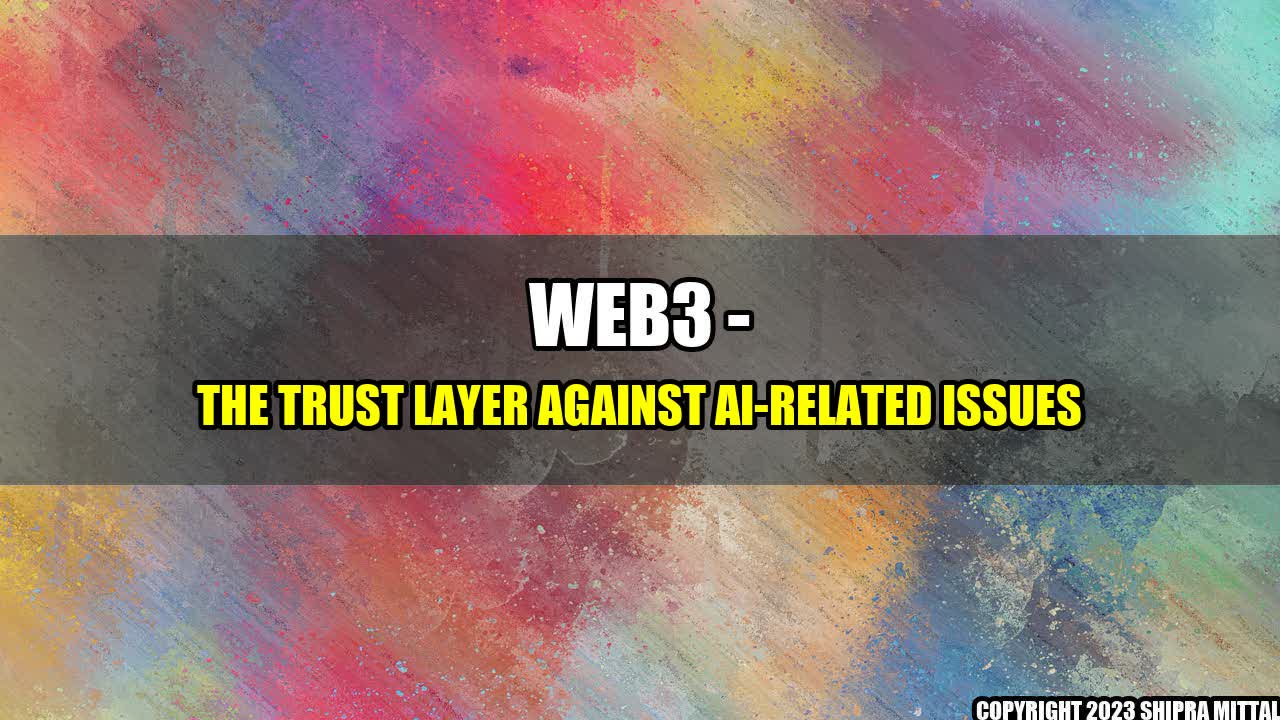Imagine a scenario where a self-driving car malfunctions, leading to a fatal accident. Who is responsible for the accident? The car's manufacturer, the software company, the car owner, or the regulatory authority?
This is just one of the many ethical and legal dilemmas raised by artificial intelligence (AI) in the recent past. Unlike traditional software, AI systems can make decisions that impact human lives and property, making accountability a crucial issue.
Fortunately, Web3 technologies such as blockchain, smart contracts, and decentralized applications (dApps) can provide a solution by acting as "the trust layer" to counter issues raised by AI. Let's see how some companies are already using Web3 to enhance accountability and trust in their AI-based systems:
- Provenance: The UK-based social enterprise uses blockchain to track the supply chain of products, enabling users to verify the authenticity and ethical standards of the product. This ensures that AI-based systems that rely on these products for data input or training have access to accurate and trustworthy information.
- SingularityNET: The decentralized AI marketplace aims to enable AI agents to interact with each other in an autonomous, transparent, and trustworthy manner. By using blockchain to manage transactions and smart contracts to enforce rules, SingularityNET provides a platform for developing and sharing AI algorithms validated by the community.
- Ocean Protocol: The data exchange protocol enables data providers to monetize their data while retaining control over their data privacy. By using blockchain to record data transactions and smart contracts to enforce access rules, Ocean Protocol incentivizes data providers to share their data with AI systems and researchers while maintaining transparency and privacy.
By leveraging Web3 technologies, these companies are addressing critical issues such as data privacy, transparency, and accountability in AI-based systems. However, it is important to note that these technologies are still evolving, and there are no guarantees that they will work as intended. Furthermore, there are potential risks such as harmful bias and unintended consequences that need to be addressed.
Therefore, it is crucial to continue researching and experimenting with Web3 technologies to ensure that they can be effectively used as "the trust layer" to counter issues raised by AI.

Akash Mittal Tech Article
Share on Twitter Share on LinkedIn